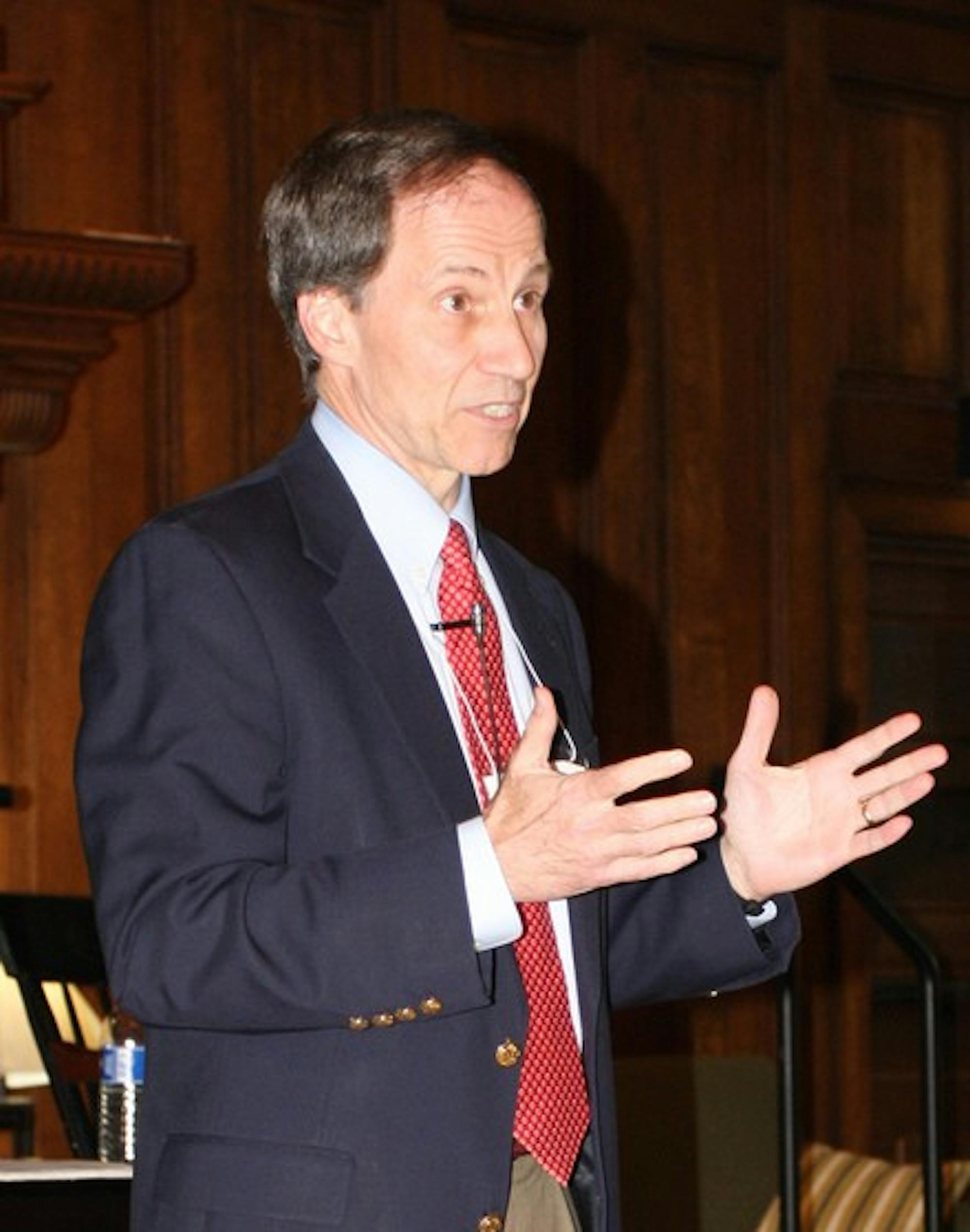The forum was designed as a question-and-answer session led by search-committee chairman and College trustee Al Mulley '70. Attendees asked questions about particular attributes not included in the leadership statement, which outlines the criteria the search committee will use to select the next president.
Mulley explained that the search committee tried to highlight desired qualifications, not dictate specific resum requirements for potential candidates.
"Our tension in developing this document is how specific we should be," Mulley said. "If you're trying to attract a real leader, you don't want to write a job description."
Both alumni and students expressed concerns over the financial security of the College, specifically in light of the recent financial crisis and increasing oil prices. Mulley explained that because it is likely the next president will be at the College after the resolution of the crisis, it should not be a major concern. Dartmouth's endowment is one of the highest in the nation, relative to the size of the school, Mulley noted.
"Dartmouth's commitment to financial aid is forever," Mulley said, adding that he himself is a first-generation college student.
Some audience members brought up input offered at earlier community meetings but not included in the leadership statement. Students and faculty had addressed concerns about sustainability during previous forums, Nick Devonshire '11 said, but these concerns were not reflected in the statement.
"I just want to make sure it's not a footnote," Devonshire said, "I'm wondering what you're going to do to make sure Dartmouth's next president will keep the Big Green the leading green example that it is."
Uthman Olagoke '11 expressed concern about a lack of diversity among Dartmouth's past presidents.
"We all know that the 16 past presidents have been white, old males," he said.
Mulley responded that the search committee is dedicated to addressing issues of diversity, adding that the statement mentions these concerns.
"Diversity is one of the principal values in the newly articulated mission statement," Mulley said.
Mulley also commented on the recent alumni controversy, saying that it has not played a major role in the search due to the Association of Alumni's June decision to drop its lawsuit against the College.
"In May and April it was an issue we were worried about," Mulley said. "I think June 5th was a very good day for the search committee."
An '09 student who identified herself as Allie asked whether the search committee is looking for candidates who will continue current President James Wright's work with veterans.
Mulley responded that there is no way to include this qualification in the leadership statement because the document is not a job description. He added, however, that the committee is looking for a candidate who exemplifies a similar dedication to service.
Forum attendee Joe Asch '79, an outspoken supporter of the now-defunct lawsuit and critic of the current College administration, disparaged the grammar of the leadership statement, reading an excerpt aloud.
"I think that Sarah Palin talks like that," he said. He asked search committee member Gretchen Gerzina, chair of Dartmouth's English department, to give the document a grade for prose.
Gerzina responded by explaining that the document had been reviewed multiple times by executive search experts.
"So far it has gotten a lot of praise," Gerzina said, "My sense is that the document will serve us very well."
Mulley explained that the committee often had to sacrifice concise writing in favor of including as many opinions as possible.
"There was sometimes tension between the fluidity and the inclusion of everyone's input," he said. "We made choices to be very inclusionary."
The forum also gave audience members an opportunity to further understand the search process, and to personally meet nine of the committee's 15 members.
Mulley said that the committee is using the executive search firm Isaacson Miller in the search process. Dartmouth has not gone through many public presidential searches, Mulley said, and the firm is helping committee members to better understand the process.
"They are a consultant, not the group who is leading the search," he said, "[Committee members] have found names themselves, and will continue to do that."
Isaacson Miller, led by John Isaacson '68, has helped the search be "active," Mulley said, adding that all members of the committee have been making phone calls to sources and potential candidates as part of a networking process.
Mulley opened the forum by explaining that although the leadership statement had already been released, the committee would still be encouraging input from the Dartmouth community.
"It's been a little awkward lately because we've had to put something on paper," he said. "We will be interpreting that document as we make very real decisions during the fall."
At the close of the forum, Mulley invited all students, faculty, alumni and staff to take an active role in the search by submitting nominations to the committee.




